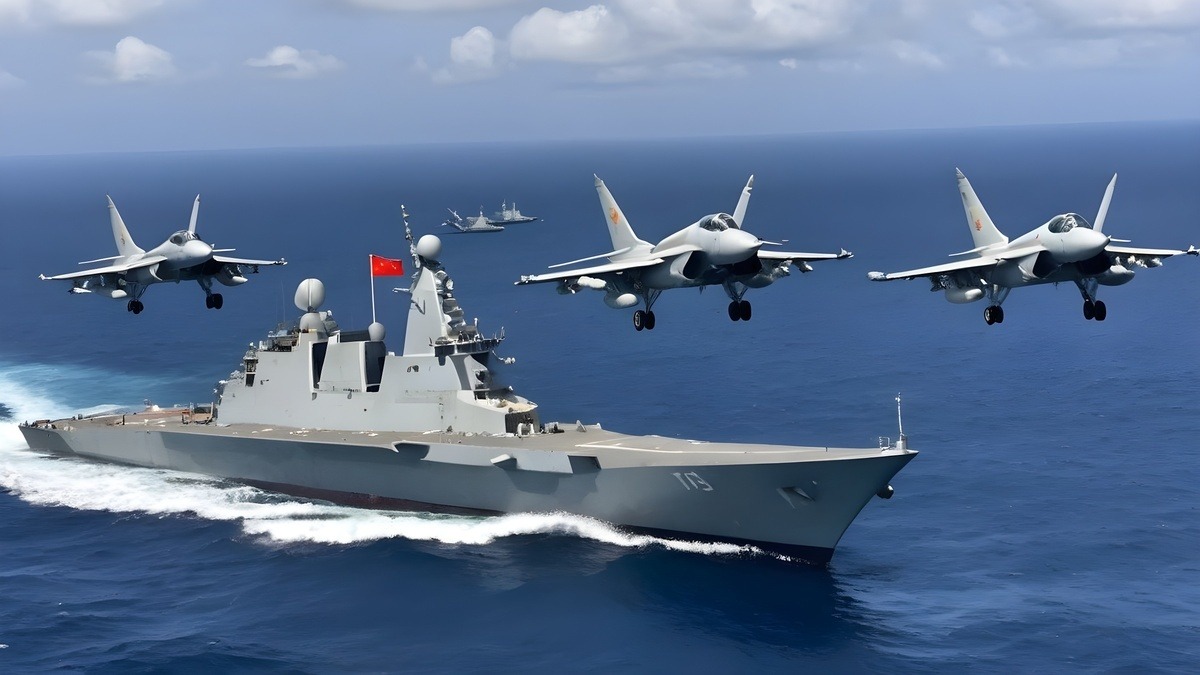On April 3, 2024, Taiwan’s Ministry of National Defense issued a grave warning upon detecting a significant buildup of 30 Chinese warplanes accompanied by 9 naval vessels operating perilously close to the island’s borders. This alarming escalation in military activity has sent shockwaves across the region, fueling anxieties about China’s intentions and igniting fears of a potential invasion of Taiwan. The unprecedented show of force has triggered urgent calls for diplomatic dialogue and heightened security measures to mitigate the escalating tensions and safeguard regional stability.
This increase is part of a recent trend. China has been steadily ramping up its military presence around Taiwan, employing what is known as “gray zone tactics.” These tactics involve actions that fall short of outright conflict but aim to intimidate and pressure Taiwan. Examples include frequent incursions into Taiwan’s Air Defense Identification Zone (ADIZ) and military drills simulating an invasion.
Motto Of China’s Military Activity Around Taiwan?
There are several reasons behind China’s growing assertiveness:
Unification with Taiwan: China considers Taiwan a breakaway province and views reunification as a core national interest.
Taiwan’s Growing Independence: Taiwan has become increasingly independent in recent years, with a democratically elected government and a strong national identity. This is seen by China as a provocation.
US Involvement: The United States has long maintained a policy of “strategic ambiguity” regarding Taiwan’s defense. This means that the US would not automatically intervene in a conflict between China and Taiwan, but it wouldn’t rule it out either. China views US involvement as a threat to its interests.
Domestic Politics: China’s leadership may be using heightened tensions around Taiwan to bolster nationalism and distract from domestic challenges.
Is Invasion Imminent?
While the increased military activity is concerning, it doesn’t necessarily signal an imminent invasion. Here’s why:
The Cost of War: A full-scale invasion of Taiwan would be a complex and costly undertaking for China. Taiwan has a well-equipped military and enjoys strong international support, particularly from the US.
Economic Impact: An invasion would likely disrupt global trade and could have severe economic consequences for China, which relies heavily on exports.
International Condemnation: The international community would likely condemn an invasion, further isolating China on the world stage.
However, the situation remains unpredictable. China’s growing military capabilities and its increasingly assertive foreign policy raise the specter of conflict in the future.
What Can Be Done to Reduce Tensions?
Several steps can be taken to reduce tensions across the Taiwan Strait:
Open Communication: Establishing clear channels of communication between China, Taiwan, and the US is crucial to prevent misunderstandings and miscalculations.
Peaceful Resolution: All parties involved should commit to peaceful solutions and avoid provocative actions.
Respecting the Status Quo: The status quo, where Taiwan functions as a self-governing entity but doesn’t formally declare independence, should be maintained for now.
Strengthening International Norms: The international community should work together to uphold norms against aggression and promote peaceful resolution of disputes.
FAQs
What is Taiwan’s stance on the issue?
Taiwan maintains that it is a sovereign state and rejects China’s claims over its territory. Taiwan seeks peaceful coexistence but will defend itself in case of an attack.
What is the US role in the Taiwan Strait?
The US has a long-standing commitment to Taiwan’s security and maintains a “strategic ambiguity” policy regarding its response to a potential conflict. The US sells arms to Taiwan and conducts joint military exercises.
What are the potential consequences of an invasion?
An invasion of Taiwan would likely trigger a major conflict with regional and global ramifications. It could disrupt global trade, destabilize the region, and lead to a wider military confrontation between China and the US.
What is the role of international organizations?
International organizations like the United Nations can play a role in promoting dialogue and a peaceful resolution of the Taiwan Strait issue. They can also provide a platform for the international community to express its concerns about China’s actions.
China’s military activity around Taiwan remains complex and fluid. Continued international attention, clear communication channels, and a commitment to peaceful solutions are vital to prevent a potentially devastating conflict. It is imperative that nations uphold diplomatic dialogue and adhere to international norms, fostering stability and mitigating tensions in the region. Only through concerted efforts and unwavering dedication to peaceful resolutions can the precarious situation surrounding Taiwan be effectively managed, averting the dire consequences of escalating military confrontation.
Read More >>https://trenditweetz.com/nato-news-on-russia-and-ukraine-war/

1 thought on “Rising Tensions In 2024: China’s Military Activity Around Taiwan and the Threat of Invasion”